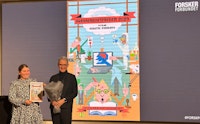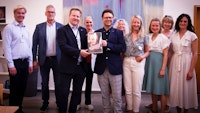Field of study: Music Therapy
Merete Hoel Roaldsnes: Music Therapy for unaccompanied minor asylum-seekers

How can a music therapy group work as a supportive measure for unaccompanied minor asylum-seekers?
Summary
Unaccompanied refugee minors are people under the age of 18 who took flight from their homeland in the absence of an escorting parent or guardian. They are people at risk who are especially vulnerable to developing mental health related issues. This study explores the role of music in the work of promoting health amongst unaccompanied refugee minors.
Research Question
The primary question this study seeks to answer is:
In what way can participation in a music group promote health for youth who were unaccompanied refugee minors?
Three research questions emerge from the overall problem:
- How do participators experience their contribution and participation in the music group?
- What health-promoting factors are revealed through the participants’ experiences?
- What challenges do the youth encounter in the music group?
Methods
In order to explore the issues and research questions, a group of youth who came to Norway as unaccompanied refugee children were invited to participate in a music group. The music groups were led by two music therapists, one of whom conducted research for this study. The group met for sessions approximately once a week over a period of ten months. These sessions had variable formats consisting of improvisation, the interplay of various instruments, instrumental education and song. The regimen also included a concert by invitation as well as recording in a studio.
Theoretical framework
The study is a community music therapy project which explores the relationship between music and health in the context of a given music group. This study is grounded in Norwegian music therapy tradition, where a humanistic, resource and community-oriented perspective on music therapy forms the academic baseline. These perspectives are part of the study’s theoretical frame of reference and reflect the researcher’s own preconceived convictions. They laid the groundwork for the music therapists’ approach to the music group and its participants.
In addition to music therapy perspectives, the theoretical reference framework of the study includes positive psychology, recognition theory, trauma-informed care, and theory of psycho-social work with unaccompanied refugee minors. The results from the analysis are discussed in light of these perspectives and the research questions are treated through a dialogue between theory and empirical study.
Findings
The findings of this study stem from qualitative research, wherein participant observation and interviews are the primary research methods for data collection. The interviews have been analysed via systematic text condensation and the field notes from the participatory observation through cate-gory-based analysis. The study takes into consideration hermeneutics and phenomenology; human experience is recognized as valid knowledge, and interpretation is a central dimension in knowledge-building.
The dissertation
Full title (translated from Norwegian): The preventive benefits of music for juvenile refugees: A case study of a music group for unaccompanied refugee minors.
The dissertation is a monograph, written in Norwegian. It is available digitally in NMH's digital archive (nva.sikt.no)
Articles relevant
Published: Jun 17, 2014 — Last updated: Dec 18, 2025




